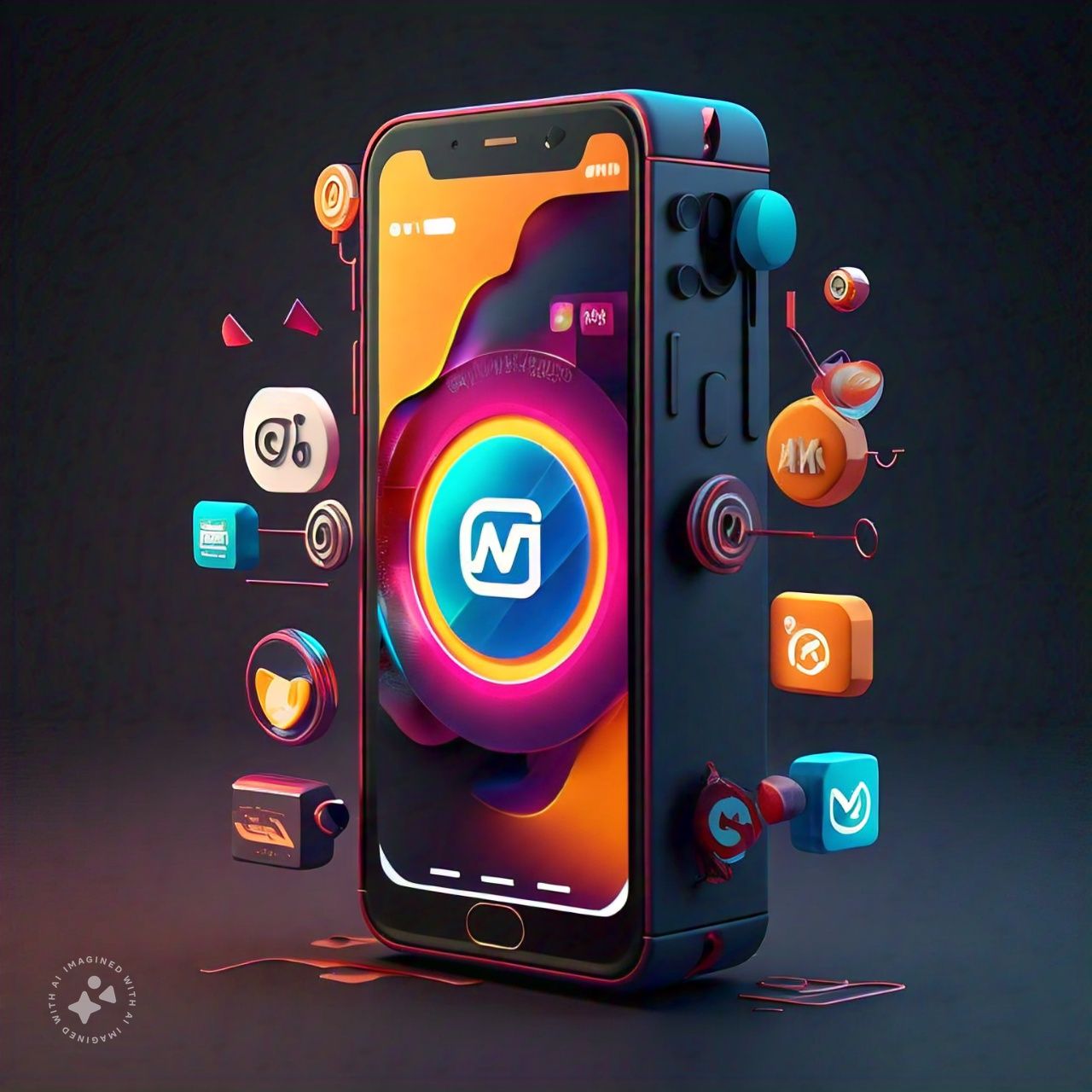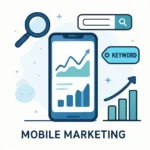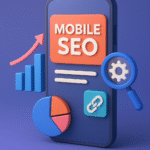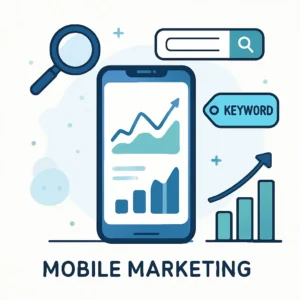

What is Mobile Marketing –
mobile marketing has become an essential component of any successful marketing strategy. With billions of people using mobile devices daily, businesses have unprecedented opportunities to connect with their target audience in real-time and on a personal level. This article delves into the intricacies of mobile marketing, its benefits, and how businesses can harness its potential to drive growth and engagement.
Table of Contents
ToggleWhat is Mobile Marketing?
Mobile marketing refers to any marketing activity conducted through mobile devices, including smartphones, tablets, and other handheld gadgets. It encompasses a range of strategies such as SMS marketing, mobile-optimized websites, mobile apps, push notifications, and in-app advertising. The goal is to reach users on their preferred devices and create a seamless, engaging experience.
Why Mobile Marketing Matters
The importance of mobile marketing stems from the sheer ubiquity of mobile devices. According to recent statistics, over 6.92 billion people globally own a smartphone. These devices are no longer just tools for communication; they are integral to how we shop, work, and consume media. Here are some key reasons why mobile marketing matters:
Wider Reach: Mobile devices provide businesses with access to a massive, global audience.
Personalization: Mobile marketing allows for tailored messaging based on user behavior and preferences.
Immediate Engagement: With mobile devices always within arm’s reach, businesses can interact with customers in real-time.
Cost-Effectiveness: Compared to traditional marketing, mobile marketing often offers a higher ROI due to its targeted nature.
Core Strategies in Mobile Marketing
To fully leverage mobile marketing, businesses need to understand and implement various strategies effectively. Below are the most impactful tactics:
1. Mobile-Optimized Websites
A mobile-optimized website ensures that visitors have a seamless experience regardless of the device they use. This involves:
Responsive Design: Websites that adjust to different screen sizes.
Fast Loading Speed: Optimizing images and minimizing code to enhance site performance.
Simplified Navigation: Ensuring users can easily find information on smaller screens.
2. App-Based Marketing
With millions of apps available, businesses can develop their own apps or advertise through popular third-party apps. App-based marketing includes:
In-App Advertising: Placing ads within apps that your target audience uses.
Exclusive Content: Offering app-specific discounts or features to encourage downloads and engagement.
Push Notifications: Sending timely updates, offers, or reminders to users who have installed your app.
3. SMS and MMS Marketing
Text message marketing remains a powerful tool due to its simplicity and high open rate. Best practices include:
Personalized Messages: Addressing users by name and tailoring messages to their interests.
Clear Call-to-Actions (CTAs): Encouraging immediate responses, such as visiting a link or redeeming a coupon.
Compliance with Regulations: Ensuring users have opted in to receive messages and providing an opt-out option.
4. Social Media Integration
Social media platforms are inherently mobile-friendly, making them ideal for mobile marketing. Strategies include:
Targeted Ads: Utilizing platforms like Facebook, Instagram, and TikTok to deliver ads to specific demographics.
Stories and Reels: Creating short, engaging content that resonates with mobile users.
Engagement Features: Using polls, Q&A sessions, and live videos to interact with audiences.
5. Location-Based Marketing
Location-based marketing leverages GPS technology to deliver content or ads relevant to a user’s location. Examples include:
Geofencing: Triggering notifications or ads when a user enters a specific area.
Local SEO: Optimizing for keywords that include geographic terms to attract nearby customers.
Event-Based Promotions: Sending alerts about deals or events happening near the user.
Benefits of Mobile Marketing
Mobile marketing offers numerous advantages that traditional marketing channels cannot match. These include:
Higher Engagement Rates: Mobile users are more likely to engage with personalized and timely messages.
Data-Driven Insights: Mobile marketing provides valuable analytics to understand user behavior and refine strategies.
Omnichannel Integration: It seamlessly integrates with other marketing channels, such as email and social media.
Enhanced Customer Experience: Mobile marketing enables businesses to deliver relevant, real-time experiences that build customer loyalty.
Challenges in Mobile Marketing
While mobile marketing is powerful, it comes with its challenges. Businesses must navigate these obstacles to maximize their efforts:
Privacy Concerns: With stricter data privacy regulations, businesses must ensure compliance while maintaining personalization.
Ad Fatigue: Overloading users with ads can lead to negative perceptions and reduced engagement.
Technical Limitations: Not all users have the latest devices or high-speed internet, requiring marketers to optimize content for various conditions.
Measuring ROI: Tracking the effectiveness of mobile marketing campaigns can be complex due to fragmented user journeys.
Best Practices for Mobile Marketing Success
To overcome challenges and achieve success, businesses should follow these best practices:
Know Your Audience: Use data analytics to understand your target audience’s preferences, behaviors, and pain points.
Prioritize User Experience: Ensure every interaction, from your website to your app, is seamless and enjoyable.
Leverage Automation: Use tools to automate repetitive tasks like sending notifications or segmenting audiences.
Test and Optimize: Continuously test various elements of your campaigns, such as CTAs, ad formats, and timing, to find what works best.
Stay Updated: Keep abreast of the latest mobile marketing trends and technologies to stay ahead of the competition.
The Future of Mobile Marketing
Mobile marketing continues to evolve as technology advances. Here are some trends shaping its future:
5G Technology: Faster internet speeds will enable more immersive experiences, such as augmented reality (AR) ads and live streaming.
Voice Search Optimization: As voice assistants like Siri and Google Assistant become more popular, optimizing for voice search will be crucial.
AI and Machine Learning: These technologies will enhance personalization, predictive analytics, and chatbot capabilities.
Sustainability Initiatives: Consumers increasingly value eco-friendly practices, making sustainable mobile marketing strategies more important.
Conclusion
Mobile marketing is no longer optional—it’s necessary for businesses aiming to thrive in today’s fast-paced digital landscape. By leveraging its various strategies, companies can build meaningful connections with their audience, drive engagement, and achieve their marketing goals. As technology and consumer expectations evolve, staying adaptable and innovative will be key to long-term success in mobile marketing.






















2 comments